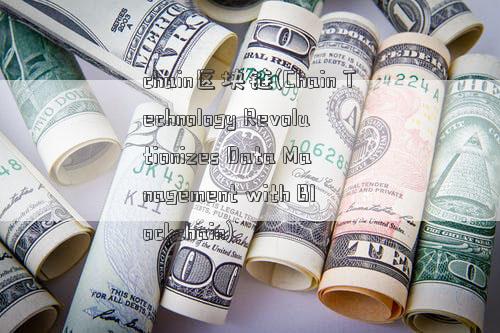chain区块链(Chain Technology Revolutionizes Data Management with Blockchain)
Introduction
Blockchain technology is revolutionizing data management as we know it with its decentralized and secure aspects that make it an ideal solution for a range of industries. One significant area where blockchain technology is making a lasting impact is in Chain Technology. Chain, an enterprise-grade blockchain platform, has emerged as a leader in blockchain technology, providing businesses with new ways to manage and secure their data. This article aims to explore how Chain Technology revolutionizes data management through blockchain and its potential benefits to businesses.
The Problem With Traditional Data Management
The traditional data management systems that businesses use rely on centralized databases, making it vulnerable to hacking, fraud, and other fraudulent activities. Furthermore, accessing the database requires intermediaries, making it time-consuming and sometimes costly. Being centralized also means that control overrides individual ownership, making the data prone to abuse. These problems hinder growth, limit data transparency, and increase operational costs.
How Chain Technology Works
Chain Technology provides a decentralized solution to the limitations of traditional data management systems. It is a cloud-based blockchain platform that makes it possible for businesses to perform operations on their data records without intermediaries. Additionally, it leverages multiparty computation (MPC) protocol to encrypt data making it more secure from being hacked or manipulated. The MPC allows multiple parties to collaborate without exposing their individual data. This solution enables businesses to conduct transactions and share data securely, efficiently, and transparently.
The Benefits of Chain Technology
Chain Technology revolutionizes data management with its numerous benefits. Firstly, it eliminates intermediaries, thus reducing transaction fees, and saving time. Businesses can securely share data and interact with customers, suppliers, and other stakeholders in real-time. Secondly, decentralization makes it possible for businesses to control their data, reducing the chances of data breaches, fraud, and misuse. Thirdly, data on chain is encrypted, making it more secure, meshing transactions that are tamper-resistant, and very transparent, allowing businesses to track and trace their records from inception.
Applications of Chain Technology
Chain technology offers a range of applications that businesses can leverage. Firstly, Chain Technology can enable businesses to issue a digital form of ownership, making it possible to track and trace assets’ movement from one entity to another. Secondly, it can support digital identity applications, enabling businesses to secure identities, minimize fraud, and comply with regulatory standards. Chain Technology can also support supply chain tracking, enabling businesses to track their goods through the supply chain minimizing waste, reducing costs, ensuring transparency, and compliance. Furthermore, Chain Technology can revolutionize the finance sector, from the creation of digital currencies to issuance, clearance, and settlement of financial instruments.
Chain Technology Implementation
Chain Technology implementation takes considerable work and resources. Integration with existing infrastructures, customizing smart contracts, and proper data formatting must be considered. Integration with legacy infrastructures can pose a vast amount of work, considering that implementing Chain Technology requires substantial investment in specialized hardware and software. Additionally, a new set of skills is needed to ensure that data management is efficient, securing transactions is safe, and adhering to regulatory requirements for blockchain.
The Future of Chain Technology and Data Management
Chain Technology is still a relatively new technology. However, its potential to revolutionize data management is already evident. The transparency, security, and efficiency that Chain Technology offers make it an ideal solution for an array of sectors. The future of Chain Technology is promising, and as more businesses integrate with it, we can expect more applications and benefits.











